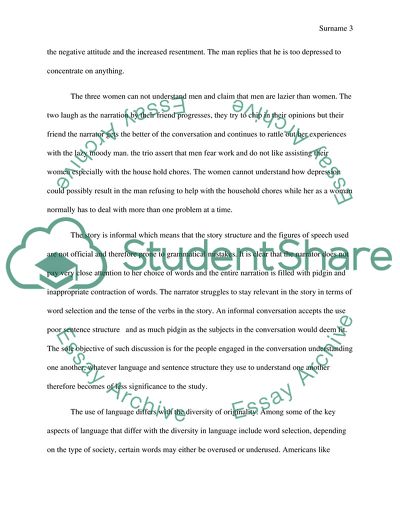Cite this document
(English Language - Identifying language creativity in everyday English Essay, n.d.)
English Language - Identifying language creativity in everyday English Essay. Retrieved from https://studentshare.org/english/1789661-english-language-identifying-language-creativity-in-everyday-english-conversation
English Language - Identifying language creativity in everyday English Essay. Retrieved from https://studentshare.org/english/1789661-english-language-identifying-language-creativity-in-everyday-english-conversation
(English Language - Identifying Language Creativity in Everyday English Essay)
English Language - Identifying Language Creativity in Everyday English Essay. https://studentshare.org/english/1789661-english-language-identifying-language-creativity-in-everyday-english-conversation.
English Language - Identifying Language Creativity in Everyday English Essay. https://studentshare.org/english/1789661-english-language-identifying-language-creativity-in-everyday-english-conversation.
“English Language - Identifying Language Creativity in Everyday English Essay”. https://studentshare.org/english/1789661-english-language-identifying-language-creativity-in-everyday-english-conversation.


